

Besides, John was so generous and thoughtful of him that he took him to his home near Cleveland, and let him stay there as a member of his family throughout the summer vacation. He was really happy to have an invaluable opportunity to learn American customs and manners in actual family life. In Bloomington, he had had to eat out for the meal while he stayed with Mr. and Mrs. Yelch as they were rather elderly.
On June 15, 1930, the train that left Bloomington in the morning arrived in Cleveland Union Station. He was delighted to find Professor Kennedy and his brother waiting to meet him there, and showed him driving 25km(16m) along the shore of Lake Erie to his home in Willowick.
In view of the lake spread like the sea in front, Professor lived with his parents (Peter John Kennedy & Genevieve Miller Kennedy), older brother (Cletis), younger brother (William), and younger sister (Genevieve). Mother was at the center of the family, while everybody else was helping spontaneously and voluntarily with housework. Even the
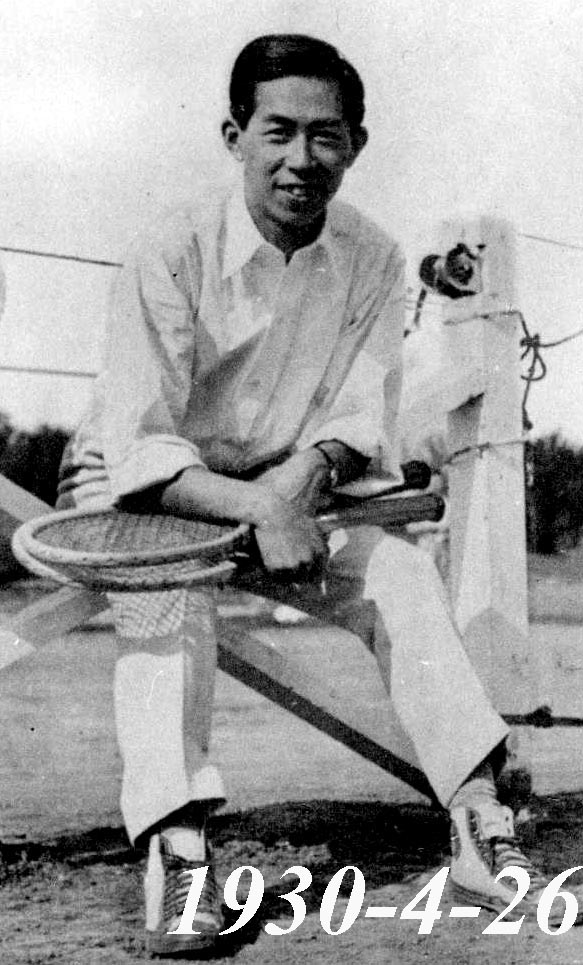 12-year-old Jenny was eager to be of any help. This was quite new to him. In Akira's family in Japan most of the housework was done by three maids and one man-servant, and children had only to review and prepare their school work at home. Now he knew he was ashamed of his negligence, he tried to be as cooperative as possible in housework. On the other hand, he was fond of and good at tennis as there was a tennis court in the garden of his place in Japan. So, when asked, he was happy to play in the court near-by as it was still light enough until around 8:00pm in summer.
12-year-old Jenny was eager to be of any help. This was quite new to him. In Akira's family in Japan most of the housework was done by three maids and one man-servant, and children had only to review and prepare their school work at home. Now he knew he was ashamed of his negligence, he tried to be as cooperative as possible in housework. On the other hand, he was fond of and good at tennis as there was a tennis court in the garden of his place in Japan. So, when asked, he was happy to play in the court near-by as it was still light enough until around 8:00pm in summer. The occasionally incoming newspaper from Japan reported on the global recession, including the news of his father's company which had fired 40 employees. Worried about all this, he enjoyed the life of haven in Willoughby. One night John took him to Willoughby theatre, where a documentary film of Richard Byrd was being shown. It was a record of his round-trip flight from the Antarctic base, Little America, to South Pole. The scene where he dropped the Stars and Stripes to the Pole from the airplane seemed to fascinate the whole audience. On the other hand, they took him to fishing in Lake Erie, or to canoeing at night on the lake. The crescent moon reflected on the surface of the lake enchanted him accompanied by distant music coming from afar to his ears.
Some other time he experienced a roller-coaster ride called "Thriller" for the first time in nearby Euclid Park on Lake Erie. In addition, he was taken to a 3-4 minute scenic
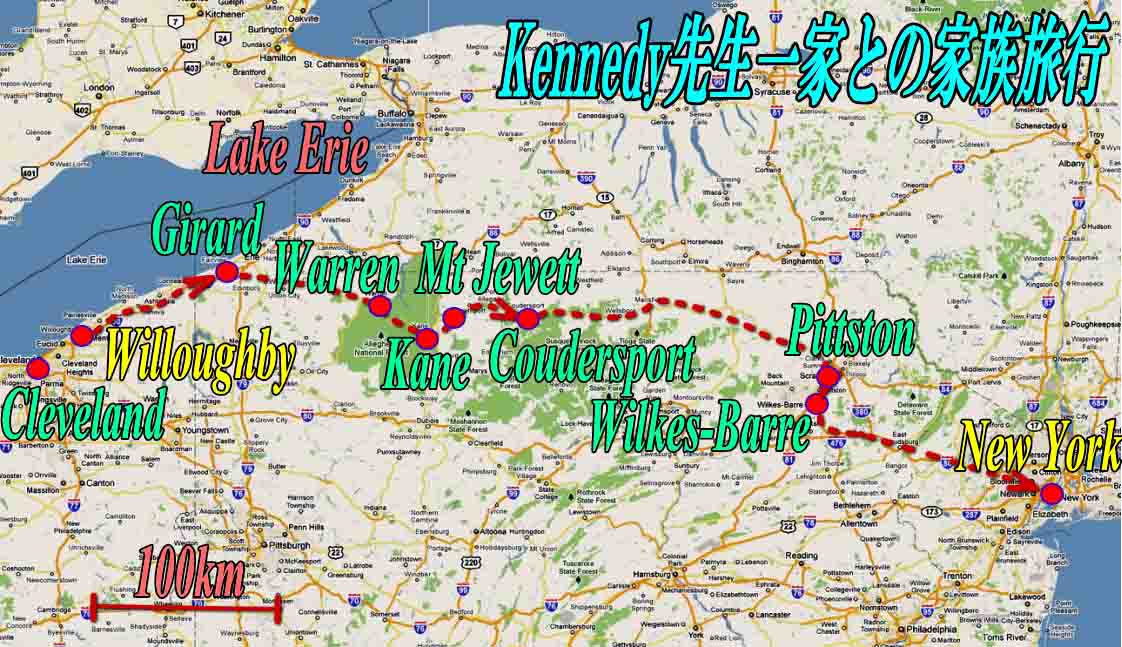 flight ($1) in a small plane over the lake. Thanks to John and his family he spent a really memorable time like a real member of his family. On top of all this, they planned a family trip in two cars to send him to New York.
flight ($1) in a small plane over the lake. Thanks to John and his family he spent a really memorable time like a real member of his family. On top of all this, they planned a family trip in two cars to send him to New York.At 8:30am on August 17, they departed Willoughby to take the route along the shore of the lake to Girard, and then took Highway 6 to Allegheny National Forest. So far he had used mostly trains to move in a long distance, so to ride in a car on a wide, flat road running beyond the speed of 100km(63miles)/h was really exciting. This was the first long-distance drive in the US for him. On the way he even admired the view of Mt. Jewett, which was only 830m(3000feet) high, and the beauty of Susquehana River. They ran 400km(250m) and took a lodging at Coudersport for the night. Next day they also enjoyed the view along Route 6, and stayed overnight at Wilkes-Barre after making 320km(200m). In the afternoon of the 3rd day they finally arrived in New York. Saying good-bye to John and his family, he settled himself at Room 4209 of the International House on the Hudson, which John had recommended.

His mother, Kochiyo, once told of some small incident about him.
During the exam period in the first grade of Junior High days, he had an ulcer in the abdomen, and went to see a doctor. He was told this needed immediate surgery, and that he should have it operated on as soon as possible.
Akira said, "Please do it immediately then. I must sit for the exam tomorrow..."
Doctor said, "It is impossible. You need to be in hospital at least a couple of days."
After operation Akira said, "I have no pain now. Let me go home." At night he left the hospital. Next morning, though feverish, he went to school, and took the exam as he had intended to.
In fact this attitude to overcome difficulty perhaps resulted in the feat of obtaining two degrees in two years from Indiana and New York universities. However, his close friend Chrispin Matta said Akita had impaired health from working too hard as a student, reflecting on Akira's life from the eyes of a medical student. Of course he advised Akira strongly, and Akira himself was careful of his health. However, the tremendous amount of work must have forced students, especially for foreigners with the handicap of language barrier, to make super-human efforts every day. Students, for fear of failing to meet the great expectations of parents and friends, worked too much, and impaired their health in many cases. Professor John Kennedy also said, "This tragedy would not have happened if Akir
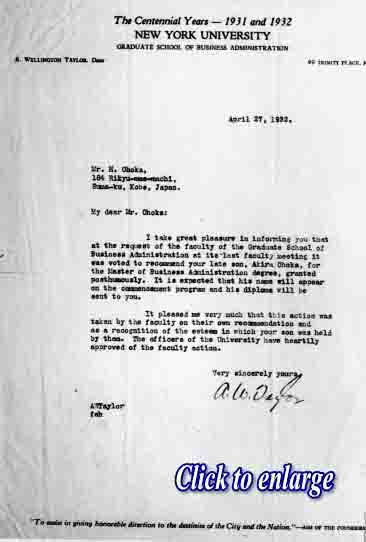 a had stayed on Indiana to go on its graduate course. I regret having advised him to go to NYU, though Akira had strongly wanted to."
a had stayed on Indiana to go on its graduate course. I regret having advised him to go to NYU, though Akira had strongly wanted to." Akira had submitted the synopsis of his graduation thesis to NYU, and probably had almost completed it. But he died before he submitted it. However, on the news of Akira's death the graduate school faculty meeting of NYU voted to recommend Akira for MBA degree granted posthumously, and diploma was sent to his father. The dean of Graduate School, A. W. Taylor wrote to him, "It pleased me very much that this action was taken by the faculty on their own recommendation and as a recognition of the esteem in which your son was held by them."
Akira was a perfectionist in a sense, and hates to be defeated. The story of defeating the opponent who had taught him on board in the Pacific was an example. In New York he was elated to win the Japanese chess, Shogi, when he met an old friend. Even when John took him to fishing in Lake Erie, he wrote humorously, "I caught 20, the professor 1." However, Kennedy family agreed he was a good winner as well as a good loser.
He also played the piano. From his junior-high school days he had been playing it. Sometimes, he played Dvorak's "Indian Lament" with his violin friend, and other times Dorrigo's "Serenade", or Japanese folk music, "This Road", or even Tchaikovsky's "Pathetique".
In his student days at Kobe he played on the stage in a large music hall, so in Kennedy's place his family looked forward to his "family concert" of Chopin, Grieg, Paderewski, and Schubert and others in turn. His modest attitude was especially favored.
While he was keen on academic research, he also had a rational, practical side. He grew up in a fairly wealthy family, but led a pretty thrifty life in the US. His close friend Matta said he had learned how to spare from Akira. Once he knew the mail order is a cheaper system, he utilized it by collecting catalogs of typewriters and other equipments, and ordered them after careful examination.
Alongside with the study of marketing he practiced investing his small allowance on the stock market, and made some money. He bought a used car of Chevrolet with it. As he had taken a driver's license while he stayed in Willoughby under the guidance of John Kennedy, he drove from International House to NYU in the old beat-up car. This seems to show the practical side of his personality.

So, when the graduate school was over in June 1931, he started on a driving trip over 3,200km(2,000m) through eastern quarter of the US. He wanted to thank again to Professor Kennedy first of all. He also had the feeling of promoting the Japan-US Student Association. But at the same time, he wanted to drive his own car in this big country and to feel it at first hand.
He invited his friend Toraichi Matsumoto to join the drive, and one other French friend at International House named Asher wanted to accompany them piggyback to Cincina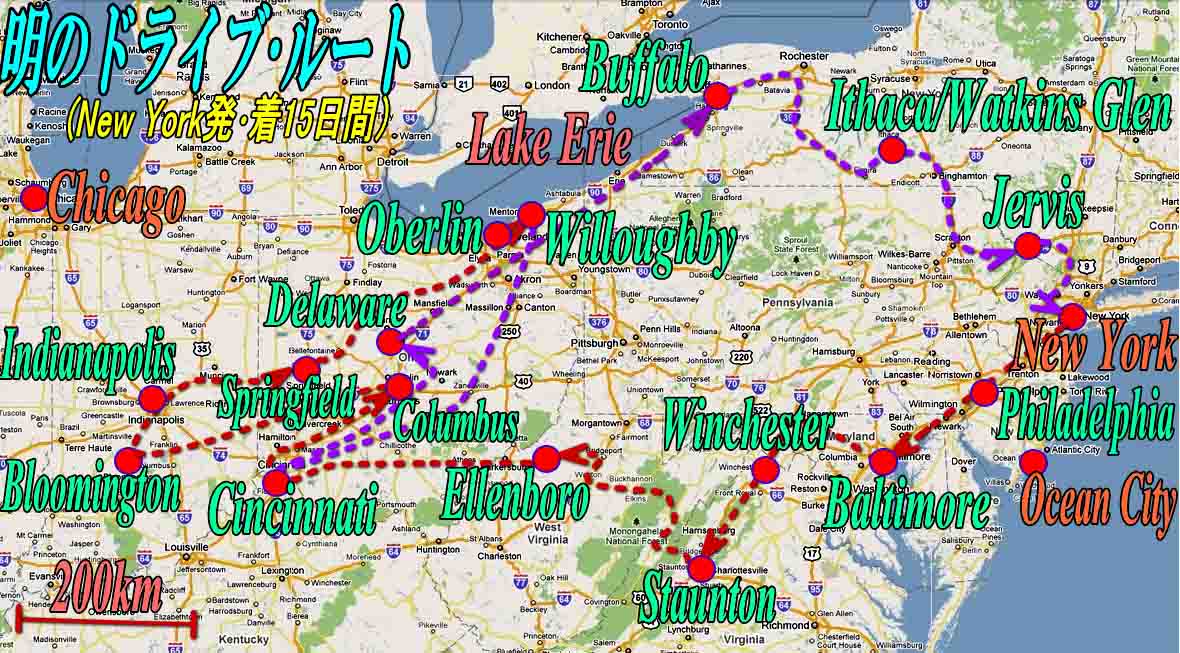 ti. Three of them enjoyed beautiful mountains, rivers, plains with corns and onions in the unbelievable expanse for the Japanese eyes.
ti. Three of them enjoyed beautiful mountains, rivers, plains with corns and onions in the unbelievable expanse for the Japanese eyes.
In Bloomington, where he was attending Indiana University the previous year, he met again Mr. and Mrs. Yelch (boarding house). According to Matsumoto's memoir Mrs. Yelch held him back, saying in tears, "Akira is my son. I don't want you to go to NY. For God's sake stay here." Professor Kennedy examined his old car, and made a little repair himself. Seeing this Mr. Matsumoto said in his memoirs, "No matter how loudly people shout out the Japan-US Friendship, the diplomacy of handshake in front with a sword hidden at the back means nothing. It is young individuals with enthusiasm and good will who create the real friendly international relationship."
Here are two episodes during the driving Matsumoto wrote on his memoirs:
In Cincinnati Asher left, having paid one-third of the cost of gas as they had promised. Then, Akira and Matsumoto drove on about 8km(5m), when Akira said, "I made a mistake in calculation. Asher had paid 25 cents more." Matsumoto said, "You can return it when you meet him nest time." But, Akira drove back immediately and met Asher to repay it explaining the situation.
In Port Jervis, NY, the car had some trouble that needed repair. So, he had it repaired at some garage nearby.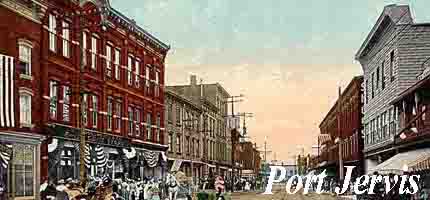 It cost $10, but he had only $50 bill. Then, the mechanic said, "I have no change at the moment. So, you can send me when you get to NY." He didn't even ask for Akira's name or address. Akira was very much impressed with his words, saying, "He boldly trusts an unknown traveler, even when educated people don't. I'm ashamed that I cannot wholly trust others." He sent $12 after he got back to NY.
It cost $10, but he had only $50 bill. Then, the mechanic said, "I have no change at the moment. So, you can send me when you get to NY." He didn't even ask for Akira's name or address. Akira was very much impressed with his words, saying, "He boldly trusts an unknown traveler, even when educated people don't. I'm ashamed that I cannot wholly trust others." He sent $12 after he got back to NY.
Realist as he was, he also enjoyed composing waka (Japanese-style poems) even in a foreign country. Here is a short poem which his friends remembered and sent to his father after his death.
Walking in the warm sunlight
On the sidewalk of a park
A chubby ball comes rolling in
From nowhere
Watching the ball tumbling,
I look up to see
A girl in red clothing
Smiling at me.
After his death many memorial messages were sent. We don't usually speak ill of the dead, but so many people who had the chance of contacting him in and out of Japan regretted his death.
One close friend of his said, "How can I explain his supreme personality, extensive interests, overflowing purity?"
"You are fortunate in many ways: in family relationship, in personality, in freedom to choose you ways, but had a lonely unexpected death in a foreign land. It seems to me like a beautiful tragedy. I feel as if I had woken up from an impossible dream. Suffering from the bittersweet taste of these feelings, I look into that hollow spot created somewhere in my mind."
One American friend said, "He had a sense of humor. He could laugh at his own failure. Akira, catching sight of a foreign friend talking to an elderly woman, said, to him afterward, 'I've witnessed your sweetie.'" After that his greeting on meeting him was "How is your girl?"
Professor John Kennedy, who, of course, Akira felt most grateful and indebted to, expressed his feelings to Akira by sending a poem by a Greek poet, Callimachus, when he lost his close friend Heraclitus:
And now that thou art lying, my dear old Carian guest,
A handful of grey ashes, long, long ago at rest,
Still are thy pleasant voices, thy nightingales, awake;
For Death he taketh all away, but those he cannot take.
And the parents of John Kennedy even said, "We still hope to meet Akira again in a world where sorrow never enters."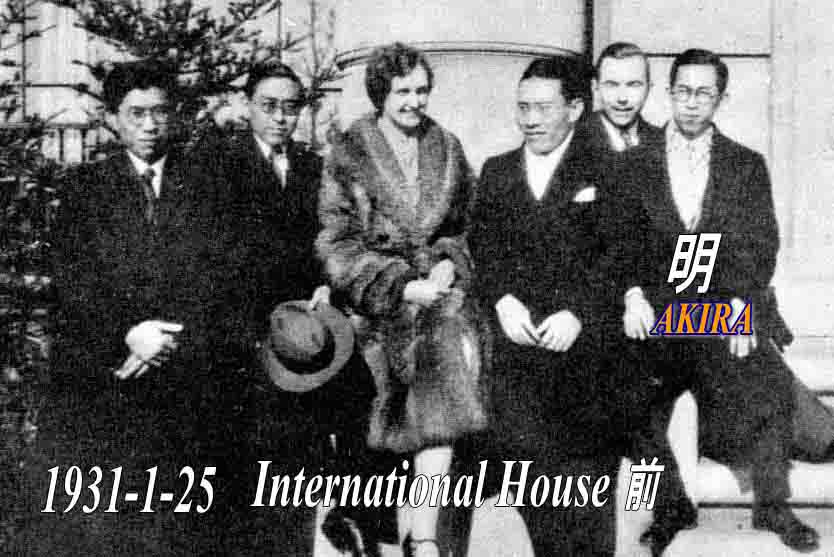
Even in an age when the average longevity was 50, the life of 24 years was much too short. However, as one close friend of his Yutaka Kojima said, "The height and depth of personality and culture you accomplished in your short life is something ordinary people cannot, no matter how long their life may be." And a Japanese pastor who conducted Akira's funeral in NY said, "He may be regarded as a sacrifice in the fight for the development of Japan in an era when young Japanese were sent overseas with a mission and responsibility to catch up with the world."
In a way he was said to be a "human dynamo", but at the same time to be a man who "make a warm place in the heart of those who know him." John Kennedy even said to his father, "We must congratulate you on having a son who represented the finest things that Japan or any country has to offer."
<END> Jump to the Front Page
<Acknowlegement>
@I gratefully acknowledge Dr. Ronald J. Taddeo, his wife Sandy and the staff
members of Willoughby Historial Society, who devotedly searched the family
history of Professor John C. Kennedy. (Takeo Aizawa)